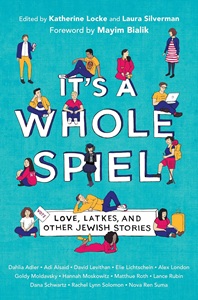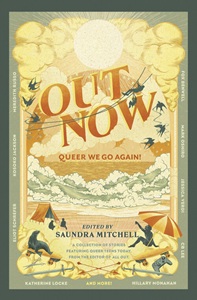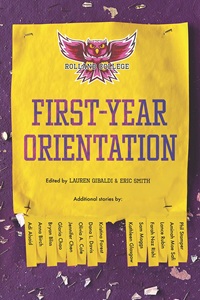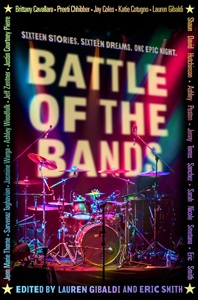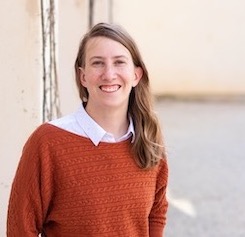Overview
A Two-Night Mini Online Course
Join author and anthologist Katherine Locke and author and agent Eric Smith to learn about the form, opportunity, and style of writing short fiction for kids and teens. This program is a great fit if you’re looking for a short course of two, 75-minute sessions offering limited interaction with the community, but loads of information.
- Monday, April 7, 2025 (7pm – 8:15pm Eastern)
- Wednesday, April 9, 2025 (7pm – 8:15pm Eastern)
- Webinar-style program with closed captioning available and limited interaction in the chat
- You’ll have access to the recordings through May 31, 2025.
Why This Workshop?
Short fiction is a dynamic and essential form of creative writing, and presents a world of opportunities.
For new writers, short stories provide the opportunity to develop a strong foundation for mastering storytelling techniques and for honing the skills needed for publication.
For seasoned writers, they offer the opportunity for creative exploration, experimentation, and growth.
For all writers, short fiction opens up unique publishing opportunities through the many online and print markets available.
Join author and anthologist Katherine Locke and author, anthologist, and agent Eric Smith as they guide you through:
- What sets short stories apart from novels
- Picking “the moment” in short fiction
- Pacing, tension, and structure in short fiction
- Meeting—and subverting—reader expectations
- Internal vs. external tension as stakes
- Short fiction markets for young readers
Feedback Expected
- None included in the course. There will be limited interaction in the chat feature of the webinar-style program.
It’s a Great Fit If…
- You have an idea for a short story but don’t know how to start. Writing prompts will help generate ideas and get those creative juices flowing, while live lectures detail the ins and outs of how to make your short story the best it can be.
- You’re a novelist interested in experimenting with new forms, voice, and writing techniques. Tackle different ways of writing without having to commit to using them for an entire novel.
- You could use some direction on your story ideas. There will be a number of topics covered to help spark new ideas and/or develop your works in progress.
- You’re looking for something short, sweet, and smart! This is not a full workshop. Instead it is two, 75-minute sessions meant to engage and spark short story ideas and experimentation!
Tentative Agenda
At registration: You will receive a Zoom link to use each night of the course.
IF YOU CAN’T ATTEND LIVE:
If you are unable to attend either session for any reason, you’ll have access to the recordings (with closed captioning) through May 31, 2025.
Please note that if you register for the course after the start of the first session, you will not receive recordings immediately. You’ll receive both recordings after the close of the last session, usually within 24 hours.
All Times are Eastern Standard Time.
Part One: Monday, April 7, 2025 (7pm-8:15pm Eastern)
- Welcome
- Introduction to Short Stories & Fiction – What, Why & How
- Finding the moment – What makes for a good short story?
- Generative writing exercises (Try this at home!)
- Mentor texts to read (handout)
Part Two: Wednesday, April 9, 2025 (7pm-8:15pm Eastern)
- Short Story forms – Exploring short fiction structure
- Where to publish short fiction & how to submit
- Writing exercises for revision (Try this at home!)
- Resources for further study (handout)
- Q & A
How It Impacts Kids
Short stories engage young readers and educators alike, and present a fun and accessible introduction to the many different styles of fiction (from contemporary realism to speculative genres).
Testimonials from Our Community
“Great enthusiasm, substantial content, and rich examples!”
“Everyone had a great attitude. I felt very welcomed into the experience and had a fun time learning.”
“I was so glad to learn the structure and underpinnings of the short story. I am still learning and thinking through a particular writing that I love to try to apply the principles and basic foundation more effectively.”
“Only able to attend because it was virtual. Therefore, I can give more space to it and it encourages me to attend.”



